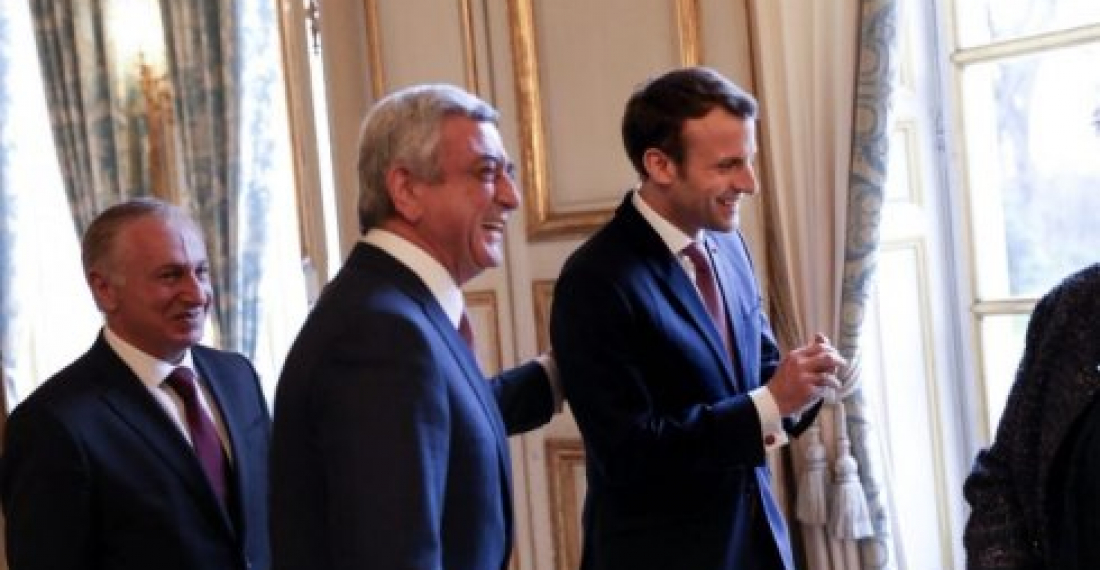- Armenia-Azerbaijan Strategic Expert Platform: Members emphasise the importance of the present moment for the South Caucasus and call for the momentum to be used for the long-term peace and prosperity of the region
- Thursday Interview: Dr. Anar Valiyev
- Food insecurity in Somalia has nearly doubled in the past year
- Türkiye evaluating potential measures in case of a US-Iran conflict
- European Parliament reaffirms support for Ukraine and EU Path
- EU moves ahead with Ukraine loan preparations despite Hungarian block
President Macron calls for "bold compromises and specific actions by both sides" in the context of Karabakh

The French President Emanuel Macron on Tuesday (23 January) welcomed his Armenian counterpart Serzh Sargsyan at the Elysee Palace for discussions on bilateral and international issues. Speaking at a press conference after a working lunch, the French President spoke about the long historical friendship between France and Armenia, and made direct references to the current efforts to resolve the Nagorno-Karabakh conflict. President Macron said that he told his Armenian guest that he was convinced that the conflict was not frozen, and described the current situation as precarious.
President Macron added:
"Only through negotiations it will be given a long-term solution for the benefit of the peoples living in the region.
It will be a solution that will call for bold compromises and specific actions on all sides. The resumption of negotiations on the part of you, Mr. President, and your Azerbaijani counterpart in Geneva last October 16, which were continued later at the Foreign Ministers' level, are encouraging.
They should be followed by specific actions.
I also congratulate us all as the foreign ministers' meeting in Krakow last week went off in a constructive atmosphere, and I hope that this enthusiasm will take us forward.
We are well aware that the process is still fragile, and the situation on the ground is unstable, so it is an absolute necessity to resume the dialogue and achieve progress.
At any rate, I reassured Mr. President of my personal involvement and my firm determination that France will continue to play its role as an impartial mediator. We closely follow the situation and, together with our Russian and American partners, we are considering any possibility to advance the settlement process."
souce: commonspace.eu with elysee.fr
photo: President Macron welcoming the Armenian President Serrzh Sargsyan at the Elysee Palace on 23 January 2018 (picture courtesy of the presidency of the French Republic)








